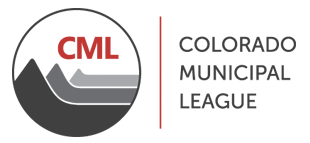CML Newsletter
In This Section
Current Articles
CML Newsletter
August 27, 2021
By Kevin Bommer, CML executive director
Toward the end of the 2021 legislative session, Gov. Jared Polis and legislative leaders worked out an agreement to immediately appropriate $2 billion of the $3.8 billion the state received from the American Rescue Plan Act (ARPA). The remaining balance will be appropriated in 2022, and legislation directed a handful of interim task forces to work on proposals to allocate most of the rest.
CML has expressed gratitude on behalf of members for several aspects of the initial allocation, particularly housing. The funded programs will allow municipalities to apply directly for funds that will address significant issues across the state.
However, one section of the planned 2022 allocation for "economic recovery and relief" was not assigned to any interim committees through legislation, but at a meeting with local officials in May it was announced that $717 million would be set aside for a similar interim process. In a document released as part of that meeting, the administration stated the money would be for "the ongoing needs of economic recovery" and rebuilding "Colorado’s economy to ensure we are the best economy in the country." In the listening tour that preceded the announcement, goals identified by participants included infrastructure that would "help regain full employment and provide additional gap relief efforts and fund unmet needs, especially for communities disproportionately impacted by the pandemic."
CML called on the governor and legislative leaders early on to commit state ARPA funding to infrastructure and was prepared to push for this in the interim process. In particular, the League has advocated for a significant infusion into the Small Communities Water and Wastewater Grant Funds that are specifically for disadvantaged communities under 5,000 population facing crippling costs for upgrading infrastructure. The state provides no continuous appropriations for the funds.
CML also called for the restoration of up to $400 million in the Energy Impact Assistance Fund in the Department of Local Affairs (DOLA). From 2008-2013, the state siphoned off local grant dollars to backfill the state budget, and in 2015 to backfill the state’s TABOR refund obligation. Those funds have never been returned and would otherwise have been responsible for up to $1 billion in infrastructure and jobs, generally in disadvantaged parts of the state.
Last week, local governments were told that while there will be some sort of economic recovery and relief interim process, those appointed will not include any local government officials and the intention seems clear to only fund state priorities. Feedback from the meeting seems to indicate that infrastructure will not be a priority because there is an expectation of money coming from the Infrastructure Investment and Jobs Act (IIJA), which is now stalled in the U.S. House of Representatives as a result of a showdown with the Senate over a larger amount of funding through budget reconciliation. The future of both IIJA and the larger package remain uncertain.
Failing to support a direct and immediate infusion into programs that will boost economies and create jobs now is unfortunate, as CML believes it would clearly “help regain full employment and provide additional gap relief efforts and fund unmet needs” in parts of Colorado that needed assistance even before the pandemic. CML will continue to advocate for the state to direct funds to programs that will have a significant local impact consistent with Gov. Polis’s Building Back Stronger goals.
Past Issues
